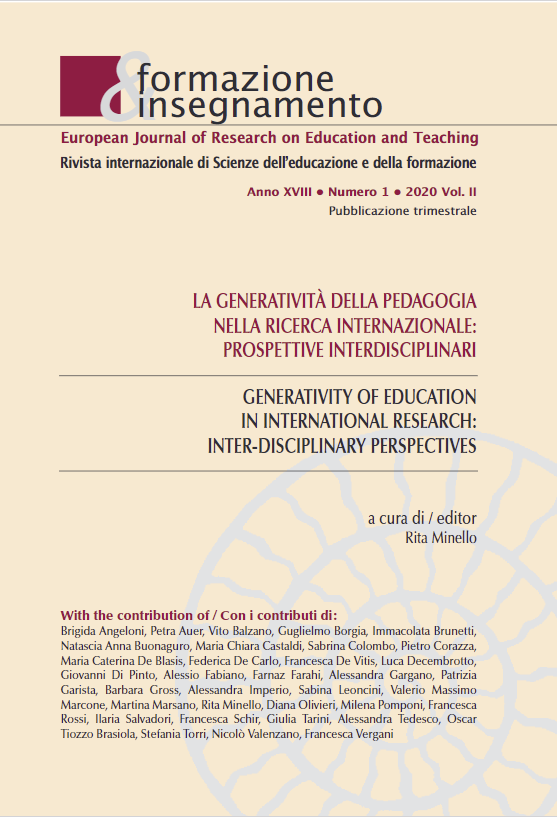Strengthening strategic skills through a game-based model at University
DOI:
https://doi.org/10.7346/-fei-XVIII-01-20_54Abstract
The research presents a pilot study that envisaged the realization of a gamebased model of didactic support to promote strategic skills in a group of students enrolled in the second year of Degree Courses in Education and Primary Teacher Education at Roma Tre University and which showed critical issues in profiles emerged from the compilation of the “Learning Strategies Questionnaire” (QSA – Pellerey & Orio 1996), the “Zimbardo Time Perspective Inventory” (ZTPI – Zimbardo & Boyd 1999; Tr. it Riccucci, 2009) and QuESU (“Questionnaire on the University Study Experience” – Marsano & Bocci, n.p.). The game-based model has been structured on the basis of six areas of cognitive and affective-motivational skills of QSA and it is characterized by the presence of elements linked to the dimensions of game, video games, gamification and Alternate Reality Games. In line with previous research (La Rocca et al., 2014; Margottini et al., 2017; Margottini & Rossi, 2017; Rossi, 2018), results show negative correlation between academic achievement and dimensions of the “disoriented student” profile (difficulty of controlling emotional states, difficulty in concentration, lack of perseverance, external locus of control and low perception of competence). Lastly, students who participated in the pathway have provided a positive feedback in relation to the characteristics of the game-based model because it has allowed them to evaluate aspects of Self that often are not adequately considered and valued during the course of study.
Downloads
Published
How to Cite
Issue
Section
License
Copyright (c) 2020 Pensa MultiMedia

This work is licensed under a Creative Commons Attribution 4.0 International License.
Formazione & insegnamento is distributed under Attribution 4.0 International (CC BY 4.0).
For further details, please refer to our Repository & Archiving Policy, as well as our Copyright & Licensing Terms.





